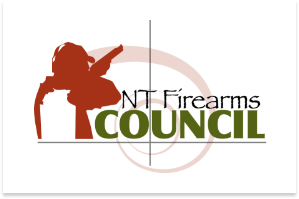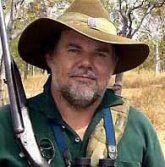Hunting and Conservation
Hunting and Conservation Issues
The NTFC has represented shooters and hunters in discussions with Government and other agencies on land management, hunting reserves, and wildlife conservation and management across a broad spectrum of issues.
The Council has regular meetings with PWC staff to plan the annual waterfowl season and manage parts of the NT estate for hunting access. A number of submissions have been presented to Territory and Federal Government departments over the years, the most significant of which are listed below:
- NTFC Submission on the Draft document "A Strategy for Conservation through the Sustainable Use of Wildlife in the Northern Territory of Australia", in 1995.
- NTFC Submission to the NT Legislative Assembly: Sessional Committee on the Environment: Protection and Multiple Use of Mary River Wetlands, February 1995.
- NTFC Submission on the Northern Territory Parks Masterplan: Draft for Discussion, November 1995.
- NTFC Submission on the Discussion Paper from the ANZECC Task force on Alternatives to the Use of Lead Shot in Duck Hunting in Australia, October 1996.
- Draft Proposal to introduce bismuth shot to Northern Territory goose shooters, submitted to then NT Minister for Environment, November 1996.
- NTFC Submission on the Wetlands Policy of the Commonwealth Government of Australia: Information Paper, February 1997.
- Submission on the Future of Recreational Hunting, presented at the NT Government-hosted meeting in May 1999.
- NTFC Submission on the Proposed New Animal Welfare Legislation, and the Bill for an Act, August 1999.
- NTFC Submission on the Draft Management Program for the Magpie Goose in the Northern Territory, November 2000.
- NTFC Submission on the Northern Territory Parks and Conservation Masterplan, November 2005.
- NTFC Submission to the Lower Adelaide River Conservation Reserves Management Review, August 2008.
- NTFC Submission on the Draft Management Program for the Magpie Goose in the Northern Territory, October 2008.
As a direct result of these submissions, and their acceptance by the various government departments or agencies concerned, Territory hunters are able to conduct their activities largely unhindered by over-regulation or government interference common in other jurisdictions.
Your Environment / Conservation Delegate:
TONY ORR
Tony has lived in the NT since January 1988, having moved here from North Queensland. He attained an Honours degree in 1979 at James Cook University and held research staff positions in the School for Biological Sciences there for several years before moving to the Territory. In the NT he has conducted environmental consultancies and natural resource inventories for mining companies, several Territory Government Departments, and the Federal Government, most recently the ADF.
He has used firearms for sport and recreation since childhood, and is a keen recreational shooter, hunter, and arms collector. He is currently a member of the Darwin Sporting Rifle Club, the Vintagers (Order of Edwardian Gunners) Australian Chapter, the Big Game Rifle Club of Australia, and the Conservation & Pest Management Discipline of the SSAA, Darwin Branch. He holds the office of President of the Arms Collectors Association of the NT, and is a Board Member of the Northern Territory Firearms Council. He is also a 25-year veteran member of the Australian Bowhunters Association.
Tony is passionate about recreational hunting and its role in conservation, and can be contacted on environmental issues.
Other environmental achievements
In early 1999 the Council joined forces with the Native Plant Society to assemble a case against Darwin Dolomite, who held a mining exploration lease over part of the Howard Swamp Hunting Reserve, and planned a 40-metre deep open-cut hard-rock mine in the vicinity of the Howard Rock-bar. When the case was heard in the Mining Warden's Court in March of that year, the NTFC Environment/Conservation delegate provided 'expert witness' testimony on behalf of Territory waterfowl hunters, and the mining application was subsequently overturned.
In September 1999, Council played a part in defeating the Phelps/Panizza proposal for an extensive aquaculture project in Shoal Bay, on part of NT Portion 3601 off the Gunn Point Road. The proposed development involved the destruction of 22 sq kms of the fragile Shoal Bay floodplain and would probably have killed the Little Howard barra nursery. Following the NTFC submission, the area was subsequently gazetted as the Shoal Bay Conservation Reserve, and immediately annexed for water-fowling and recreational pig hunting including centre-fire rifles.
Council also initiated the formal certification of recreational shooters for participation in Parks & Wildlife Commission (PWC) feral animal control operations, through development of the "PWC Guidelines for SSAA in association with the NTSC" in June 1999. Two courses were subsequently run to certify 16 hunters. A number of PWC-organised culling operations on the Parks Estate have been conducted since that date, including an armed reconnaissance of the Ptychosperma bleeseri pig-exclosures in Black Jungle, two donkey culls in Gregory National Park, an airboat-mounted pig and buffalo cull on the wet-season 'islands' in the proposed Mary River National Park, and a series of quadbike-mounted pig culls in the Wildman area. These activities are now managed by the Conservation and Pest Management discipline of the Sporting Shooters Association of Australia, Darwin Branch.
The NTFC continues to monitor state and federal environment and conservation issues, and respond where appropriate, to safeguard the interests of firearm-owners who hunt, and to ensure that the spirit of cooperation between shooters and Government continues indefinitely in the Northern Territory.
NT Field and Game Association Inc.
In addition to NTFC activities, the NT Field & Game Association is also a conscientious contributor to preserving the environment and these achievements include their regular rubbish collections since 2000 on the hunting reserves, their ongoing weed control work at Harrison Dam since 2009 and various bin installation and collections since 2014.
Mickett Creek
Shooting Complex
Darwin Rifle Club Building
(Adjacent to Range #1 on LHS)
240 Brandt Road, Berrimah
(At the end of Brandt Road)
© Copyright
NT Firearms Council Inc.
Website by
Simple Pages

